Business Leaders Sustainability Survey Findings
Q1 2023
Concerns around the environmental sustainability of business and economic activity continue to occupy business leaders’ minds, although geopolitical and macroeconomic events during 2022 appear to have reduced the intensity of this focus. But as these arguments develop and mature, subtle distinctions can be found among these varying attitudes. This is a key finding from the latest Eden McCallum survey of business leaders.
250 business leaders, mostly from the UK and Netherlands, shared their views about their approach to environmental sustainability. Opinions varied between publicly listed and privately owned companies, and between business-to-customer (B2C) and business-to-business (B2B) operations. But most business leaders are giving these questions a serious amount of thought.
In slight contrast to an Eden McCallum survey conducted in 2021, 15% fewer business leaders today said they were ‘very concerned’ about the environment and sustainability (40% today compared to 55% in 2021). It is likely that recent geopolitical events such as war in Ukraine, rising inflation and energy shortages have, in the short term, shifted some of the focus away from longer term concerns about the environment.
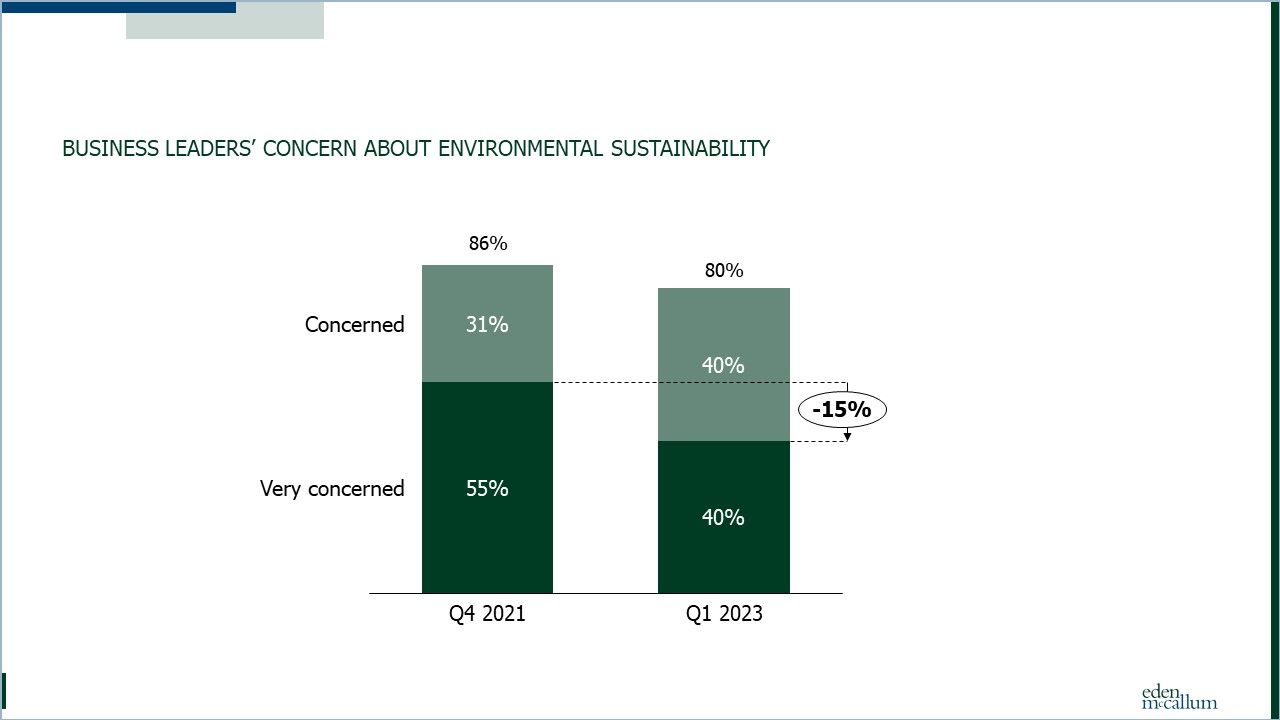
Business leaders, however, recognise their responsibility as far as impact on the environment is concerned. While they are most likely to say that governments and regulators have a ‘very important’ impact on the environment – 78% of respondents – corporates are second on the list, with 57% saying their impact is ‘very important’. Other groups, such as individuals, global agencies, and charities/campaign groups are seen as less important. In contrast, consumers view most of these groups (other than charities) as having equal – but lower – impact (see our Consumer Sustainability Survey results here).
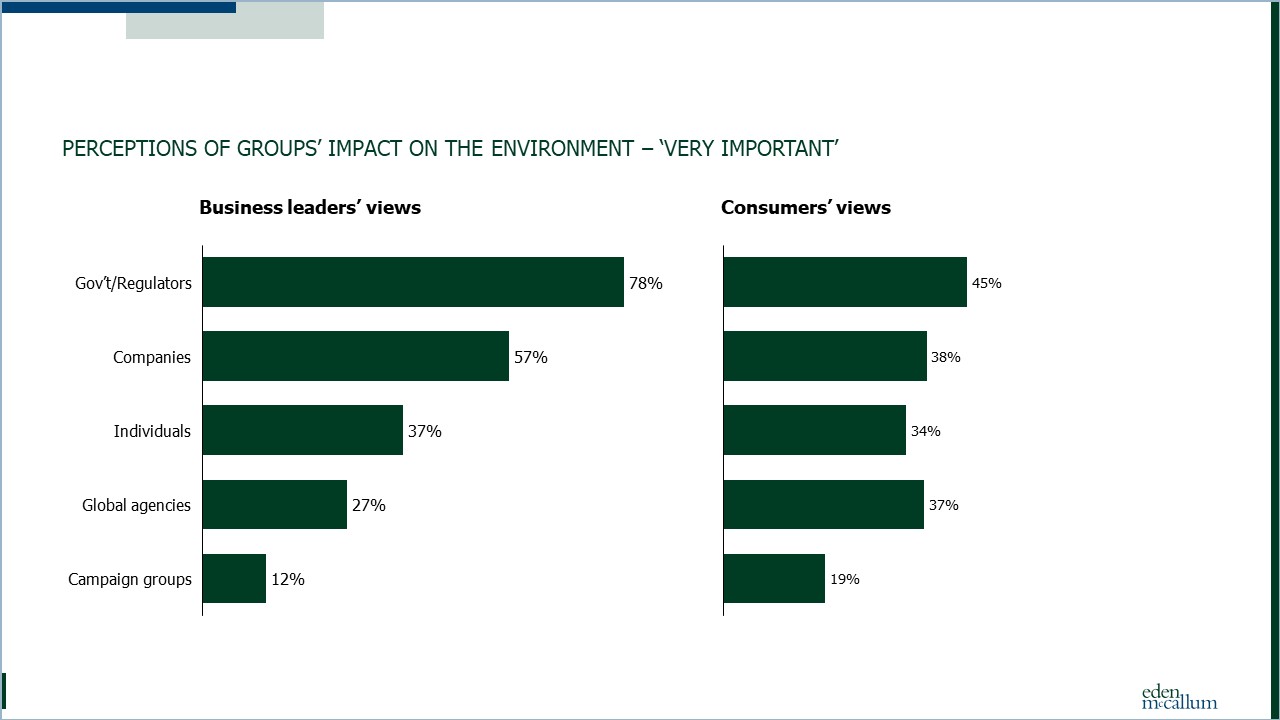
Perhaps unsurprisingly, publicly listed companies are significantly more likely to have time-bound environmental sustainability targets (and to have shared them openly) than privately held organisations. As many as 93% of quoted companies share their targets publicly, as opposed to 49% of privately held companies. But environmental engagement is increasing in private companies, with 78% having sustainability policies now, compared with just 66% in 2021.
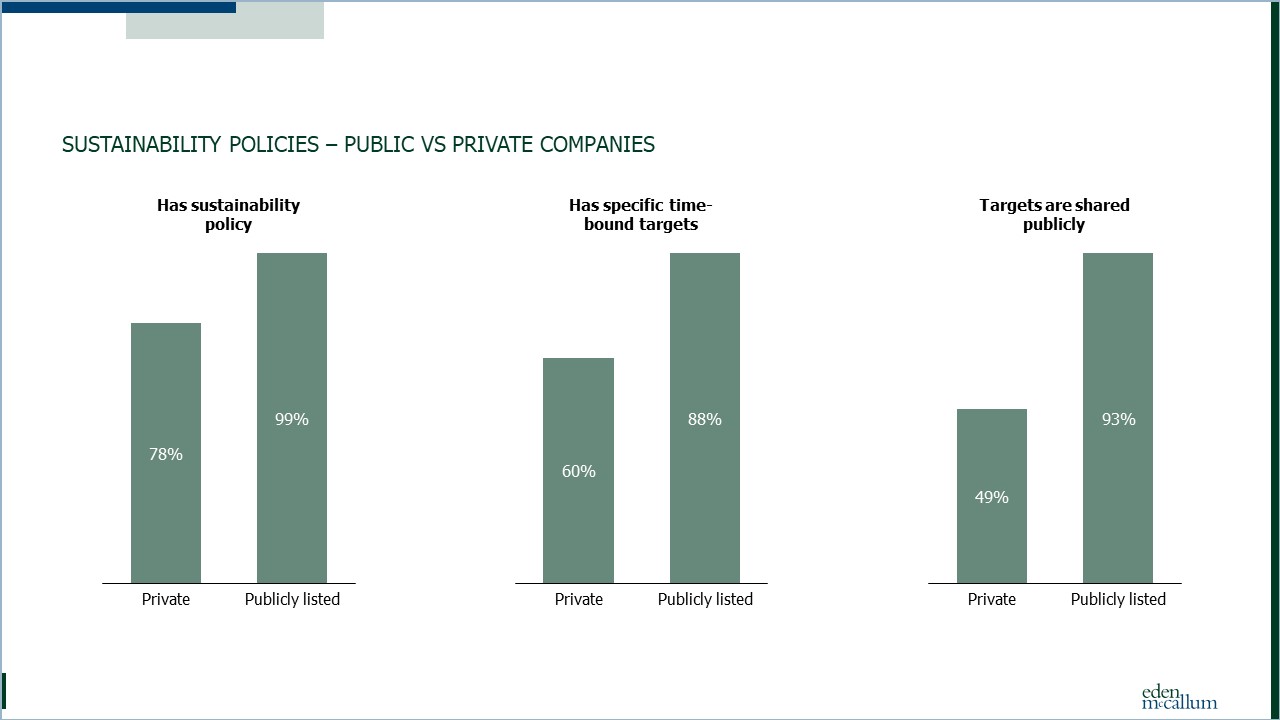
Disclosure does not necessarily reveal the whole story about corporate behaviour, however. While more B2C companies share environmental sustainability targets publicly than B2B companies – 73% of B2C companies do this, compared with 63% of B2B companies – B2B companies are more likely to practise sustainable behaviours than B2C firms are, particularly in relation to energy and business travel.
The people factor – customers and employees – provides the key impetus for business leaders when it comes to shifting their approach on sustainability. Customers are top with 80% of business leaders saying they are important influencers (of which 38% say they are ‘very important’) and 76% cite employees (of which 32% say ‘very important’). Other factors – regulation, pressure groups or competitors – are seen as less important.
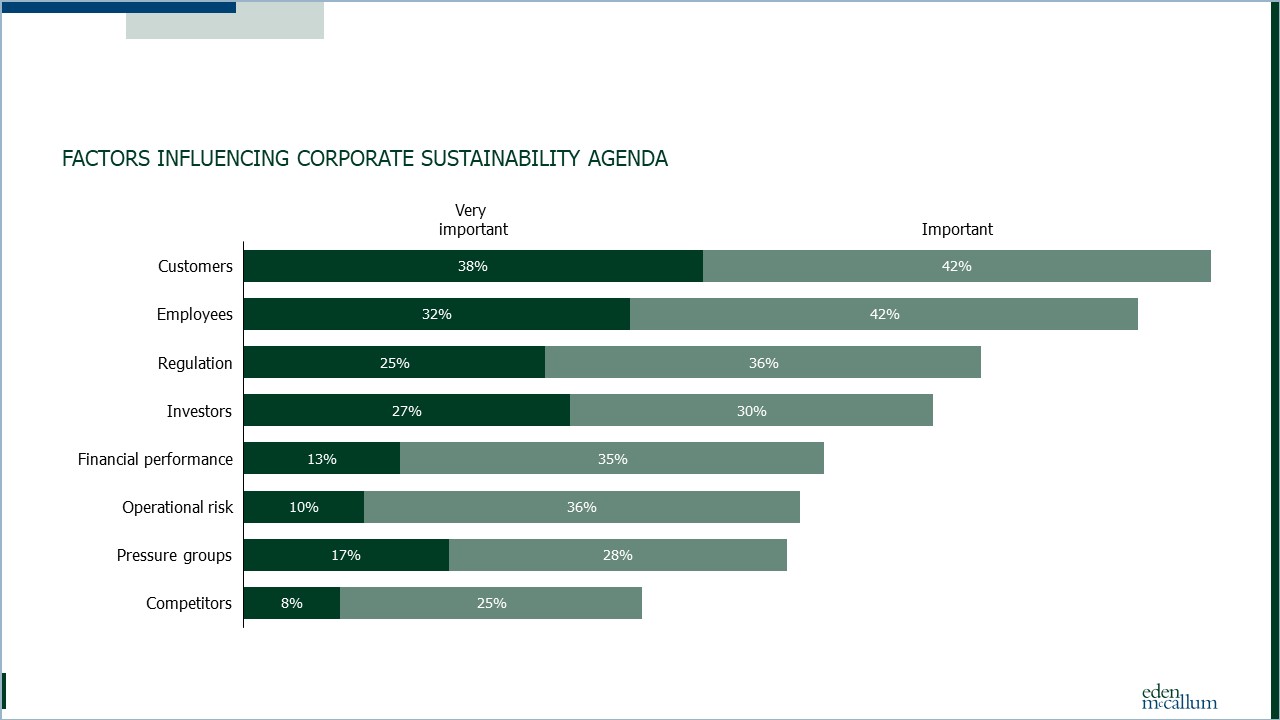
Public companies are more likely to be influenced to adopt environmental sustainability agendas than private companies are, particularly by investors. 74% of quoted companies are influenced by investors or lenders, but only 44% of privately held companies are.
Businesses are taking a broad range of actions to adopt more sustainable behaviours. About half of businesses are taking ‘significant’ action on using renewable energy and recycling. But fewer – only around 20% – are taking significant action to encourage the use of trains instead of planes or public transport instead of driving to work, which might have a greater impact than recycling, for example. As we found in our Consumer Sustainability Survey, the actions with the greatest uptake are often not the ones with the greatest environmental impact.
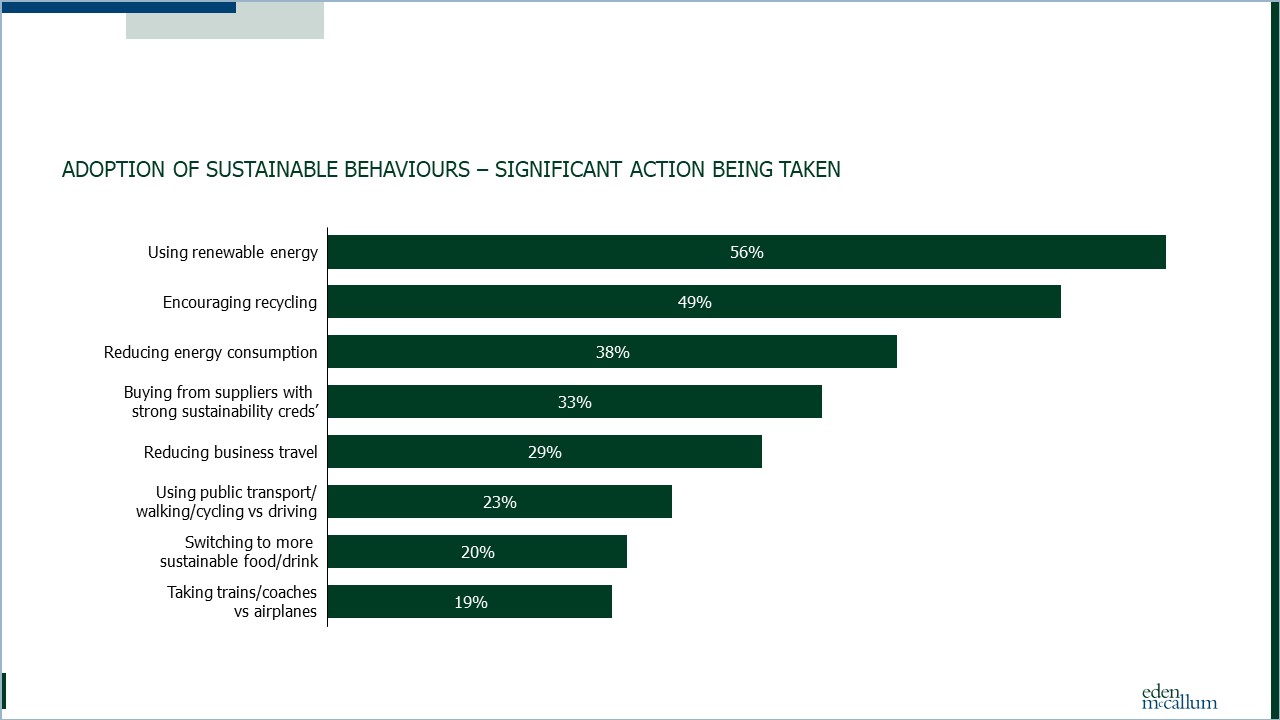
Liann Eden, co-founder of Eden McCallum, says businesses are still moving in the direction of more environmentally responsible behaviour, but at varying rates. “We found some differences in our latest survey, between publicly listed and privately held businesses, and between B2B and B2C firms. But what they have in common is a strong commitment to making more sustainable strategic choices and taking appropriate action as a consequence.”
To view the full results, please click here.
Follow us on LinkedIn to remain updated.

